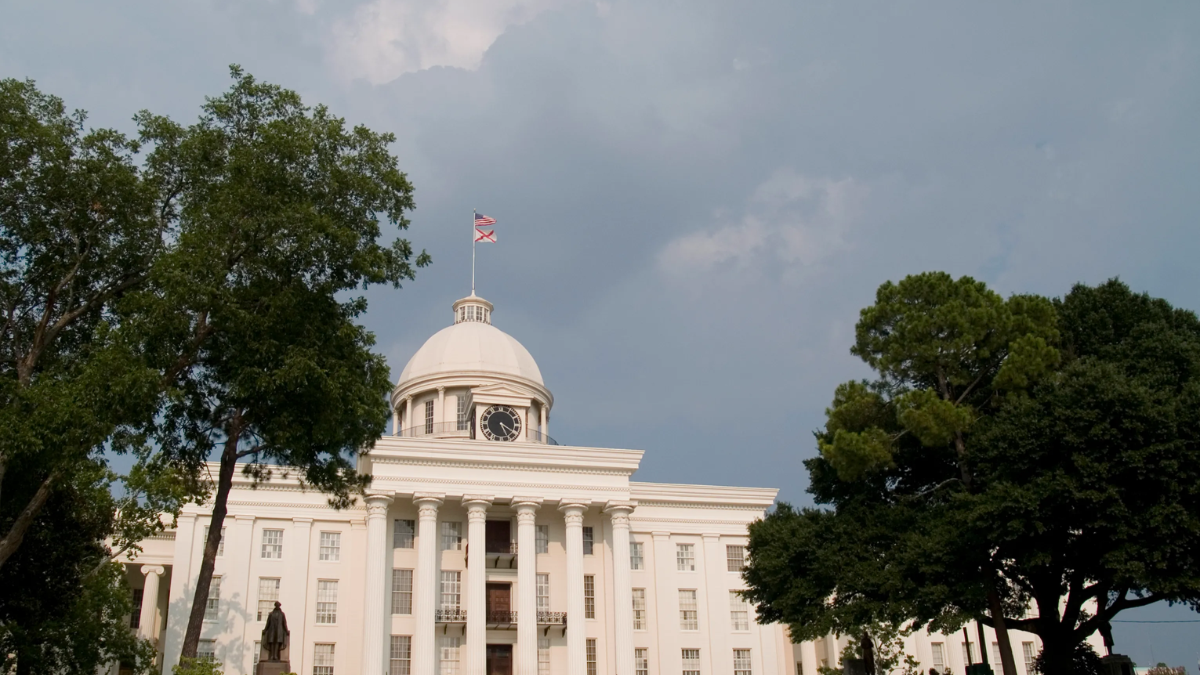Alabama lawmakers are considering a new bill that could impose criminal penalties on individuals protesting near private residences during nighttime hours. The proposed legislation is being promoted as a way to prevent harassment and protect citizens’ privacy, but critics argue that it could restrict First Amendment rights.
The debate over this bill underscores the ongoing tension between public demonstration and personal privacy, raising concerns about its potential legal and social consequences.
Understanding Alabama’s Proposed Anti-Protest Bill
The bill, currently being debated in the Alabama legislature, seeks to regulate demonstrations near private homes after dark. Lawmakers in favor of the proposal say it is necessary to curb disruptive and intimidating behavior, especially in cases where protests target public officials, judges, or private individuals.
By establishing specific legal consequences for nighttime demonstrations, supporters believe the law will help maintain order and prevent situations that could escalate into threats or violence.
Key Provisions of the New Alabama Legislation
Under the proposed law, individuals participating in protests near private residences during designated nighttime hours could be charged with a misdemeanor. The bill defines restricted areas and sets specific times during which protests would be prohibited.
Violators could face fines and, in some cases, jail time depending on the severity of the offense. Additionally, the law would empower law enforcement officers to disperse unlawful gatherings, ensuring compliance with the new regulations.
How This Bill Aims to Regulate Nighttime Protests
The bill focuses on protests occurring outside private homes, particularly those that involve loudspeakers, chanting, or other activities that may disturb residents. Lawmakers argue that people have the right to feel safe and secure in their own homes without fear of disruption from demonstrators.
Similar laws have been introduced in other states to address concerns about targeted harassment, particularly in politically charged environments.
If enacted, this law would create stricter boundaries for protests, requiring activists to relocate their demonstrations to public spaces rather than residential areas. While some see this as a reasonable limitation, others worry that it may hinder the ability of citizens to express grievances effectively.
Supporters Say the Bill Protects Privacy and Safety
Proponents of the bill argue that its primary goal is to safeguard individuals from harassment and ensure that public figures and private citizens alike can feel secure in their homes. Supporters cite instances in which protests outside private residences have led to tense confrontations, increased security concerns, and disturbances to neighbors.
Advocates of the legislation believe it is a necessary measure to balance the right to protest with the right to privacy. They contend that demonstrations can still take place in public areas such as government buildings and town squares, where they can effectively reach decision-makers without encroaching on personal spaces.
Critics Argue the Bill Violates Free Speech Rights
Opposition to the bill has come from civil rights groups and free speech advocates who argue that the legislation imposes unnecessary restrictions on protest rights. Critics worry that it could be used to suppress dissent, particularly against public officials or controversial policies.
Historically, protests outside officials’ homes have played a significant role in various social movements, including civil rights and labor protests. Opponents warn that the bill could set a precedent for further limitations on public demonstrations, making it easier for authorities to curtail peaceful protests in other locations as well.
Some legal experts have raised concerns that the bill may be challenged in court for violating constitutional protections. They argue that any law restricting protests must be narrowly tailored to avoid infringing on free speech rights, and there is a possibility that this bill could be seen as overly broad.
Potential Legal and Social Implications
If passed, this law could have significant implications for protests and public activism in Alabama. Protest organizers may need to rethink their strategies, moving demonstrations away from residential areas to comply with the law.
This could weaken certain protest movements, particularly those aimed at holding individuals accountable for political or legal actions.
There is also a possibility that the law could face legal challenges. The U.S. Supreme Court has ruled on cases involving protest restrictions in the past, sometimes upholding limitations that protect residential privacy while also striking down overly restrictive measures.
If challenged, Alabama’s law would likely be examined to determine whether it upholds constitutional protections for free speech and assembly.
From a broader perspective, the passage of such a bill could encourage similar legislation in other states. As political tensions remain high in the U.S., laws aimed at regulating protests may become more common, sparking further debates over the boundaries of free expression.
What Happens Next? The Bill’s Path Forward
The bill is currently under consideration in the Alabama legislature, with ongoing debates and amendments being discussed. If it receives enough support, it will move to the governor’s desk for approval. Given the strong opinions on both sides, the final outcome remains uncertain.
Public response to the bill has been mixed, with advocacy groups mobilizing both in support and opposition. As discussions continue, the debate over balancing protest rights with personal privacy will remain at the forefront.
Conclusion
The proposed Alabama bill represents a significant development in the ongoing discussion about protest regulations and free speech. While supporters emphasize the need for peace and security in residential areas, critics argue that it could undermine the right to assemble and voice dissent. The future of the bill will likely depend on legal scrutiny and public opinion, making it a key issue to watch in the coming months.
For further details on this legislation, visit AL.com.
Disclaimer – Our team has carefully fact-checked this article to make sure it’s accurate and free from any misinformation. We’re dedicated to keeping our content honest and reliable for our readers.
